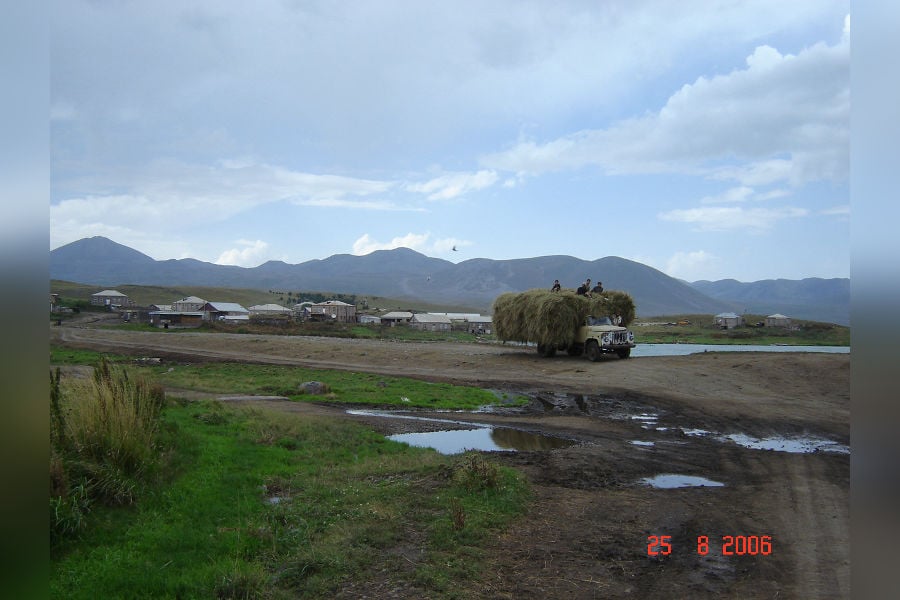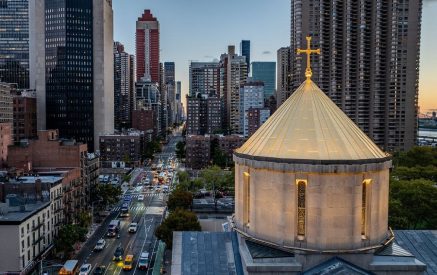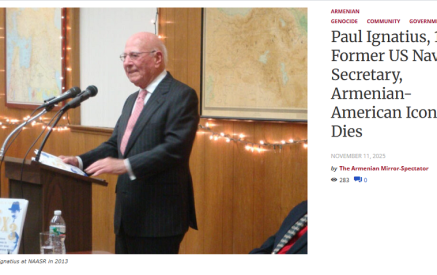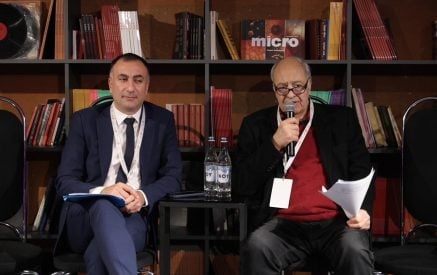Armenian Weekly. In the shadow of regional and geopolitical battles, a quiet drama of a forgotten diaspora is unfolding in the highlands of Samtskhe-Javakheti, Georgia. Just a few hours’ drive from the Armenian border lives one of the largest Armenian communities outside Armenia itself. Javakhk, as it is called by local Armenians, is a unique corner of the Caucasus.
According to various estimates, 95 to 98 percent of the population is Armenian, whose ancestors settled in these lands centuries ago and were later resettled from Eastern Armenia in the 19th century after the Russo-Turkish wars. But with each passing year, the voice of these people is becoming quieter and their connection to their historical homeland is weakening.
Samtskhe-Javakheti remains one of the poorest regions in Georgia, with unemployment rates sky-high. Residents claim that Tbilisi is deliberately holding back the region’s economic development, fearing that economic independence could become a catalyst for separatist sentiments.
Indeed, key infrastructure projects, such as the construction of the Baku-Tbilisi-Kars motorway, have been implemented with minimal benefits for the local population, sparking protests over land seizures and the lack of jobs. International organizations also allocate certain funds for the development of the region, but distribution is controlled from the center, often without consideration of the Armenian community’s needs.
Read also
The Weekly spoke to Zaven Kelindzhan*, a father of two from the city of Akhalkalaki. He stated outright that “Georgian authorities are strengthening their sovereignty within the country. But this is all being done using harsh, often even brutal methods, without regard for minorities and their interests.”
The language issue also remains crucial for local Armenians. Georgian is the only official language, and knowledge of it is mandatory for obtaining citizenship, access to higher education and public service. For many of our compatriots, especially the older and middle generations in rural areas, Georgian remains a foreign language. This creates an insurmountable cultural barrier.
The education system in the region is officially bilingual, but the quality of Georgian-language instruction is often criticized. Many graduates of Armenian-language schools cannot compete with their peers from other parts of the country.
For its part, the Georgian government has stated its desire to resolve these issues through new language and infrastructure programs. However, many residents consider these efforts insufficient and too late.
“They talk about integration, but in reality, they are building a wall,” said Kelindzhan.
“My children will not be able to go to university, not because they are stupid, but because they do not have access to quality language teaching. This is systemic discrimination.”
Education and culture remain the main pillars of Armenian identity in the region. Yet, the Armenian-language school system in Javakheti is in deep crisis. A shortage of qualified teachers, especially in Georgian, outdated textbooks and systemic shortcomings leave schools unable to compete with Georgia’s state education system, which many see as a vehicle for assimilation.
The Armenian government allocates grants and sends specialists, but residents say these measures are piecemeal and insufficient. Instead of targeted, large-scale educational support — such as teacher training and the creation of modern curricula — Yerevan has settled for half-measures.
This is a losing battle, which will result in a generation unable to integrate into Georgia or preserve its cultural identity.
It is also important to note that despite their compact settlement, the Armenians of Javakhk have virtually no participation in the region’s political life. The majority voting system and the complex party registration rules effectively preclude the emergence of strong regional movements that could lobby for Armenian interests at the national level. Any attempts to create public organizations advocating cultural autonomy are immediately met with fierce opposition and accusations of separatism.
“Those of us who want to get jobs in administrative or government institutions face widespread rejection under various pretexts,” Kelindzhan asserted.
The Armenians of Javakhk want to be full citizens of Georgia, but with the right to preserve and develop their language and culture. They need roads, jobs and quality education that will open doors to Georgian society — but without renouncing their identity.
Until these questions are answered, Samtskhe-Javakheti will continue to remain not just a geographical periphery of Georgia, but a symbolic zone of deferred discontent and unrealized potential — a ticking time bomb in an already troubled Caucasus.
The blame for this lies not only with the Georgian authorities and their failed domestic policy, but also with the Armenian government. For Yerevan, Javakhk has long remained a “blind spot” on the map of diaspora policy. While resources and attention were directed towards more powerful and wealthy communities in the West, the problems of Armenians in neighboring Georgia — facing real threats of assimilation and marginalization — were considered secondary.
“We all want justice from the Georgian authorities and, at the same time, pray that the Armenian government will pay attention to us and use at least some resources to solve the problems of Javakhk,” Kelindzhan emphasized.
It would seem that all the problems described are obvious, but Prime Minister Nikol Pashinyan’s government, which came to power with slogans about a new, strong and united Armenia, has yet to propose a vision for working with the diaspora — particularly with vulnerable communities like Javakhk.
Yerevan’s inaction has its price. Every year, the cultural and linguistic gap between Armenia and its Georgian diaspora grows wider.
Losing Samtskhe-Javakheti as a living and breathing center of Armenian identity will not only be a humanitarian disaster, but also a severe strategic defeat and further evidence of Armenia’s inability to protect its people, even on its borders.
The time for piecemeal measures is over. A state strategy backed by significant resources and political will is needed. Otherwise, very soon, Yerevan will have no one to talk to in Akhalkalaki.
*Surname has been changed for confidentiality.
Cover Photo: An Armenian-populated settlement in the Ninotsminda municipality of Georgia, on the shores of Lake Parvana, in the territory of historical Javakhk, August 25, 2006 (Source: Wikimedia Commons)
























































